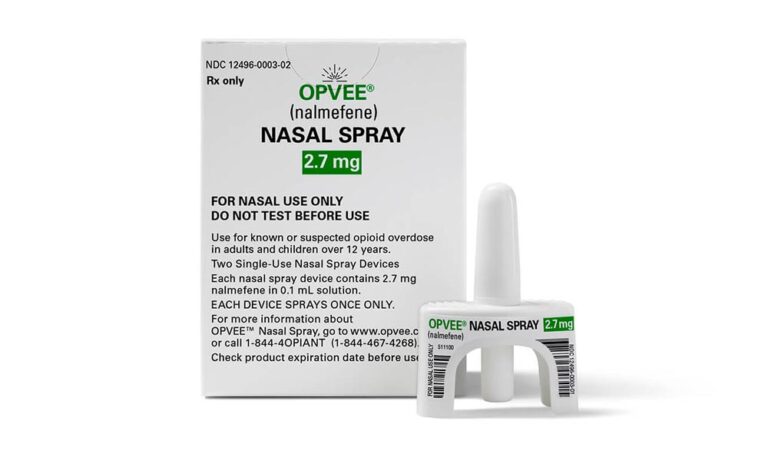Synopsis-
“The FDA approved Opvee, a nasal spray version of the medication nalmefene, which initially received approval as an injection in the mid-1990s but was later pulled from the market due to low sales. Naloxone is available as a nasal spray and an injection.”
The US was in news for drug overdose death rates. Over 106, 000 individuals died from drug-involved overdose in 2021 because of prescription opioids and illicit drugs. Combating the drug crisis in the US, health regulators in the US approved a new easy-to-use version of a drug to reverse overdoses caused by heroin, fentanyl and other opioids.
The FDA approved Opvee, a nasal spray version of the medication nalmefene, which initially received approval as an injection in the mid-1990s but was later pulled from the market due to low sales. Naloxone is available as a nasal spray and an injection.
Opvee is akin to naloxone, a life-saving medication that has been used for many years to treat heroin, fentanyl, and prescription painkiller overdoses. Both function by blocking the effects of opioids in the brain, allowing people who have recently overdosed to resume normal breathing and blood pressure.
It’s unclear how the novel medication will be used differently than naloxone, and some experts see possible downsides to its longer-acting effect. The medication will be available by prescription only to patients aged 12 and up.
Opvee was created by Opiant Pharmaceuticals, which has just been bought by Indivior, a maker of several opioid addiction medications. Indivior anticipates launching Opvee in October at the very least.
Opvee accomplished similar recovery outcomes to Narcan, the most popular brand of naloxone nasal spray, in federally funded studies.
As the opioid epidemic shifted to fentanyl and other synthetic opioids, pharmaceutical industry and government researchers saw a new role for the drug.
Because fentanyl has a longer half-life in the body than heroin and other opioids, some people might need numerous administrations of naloxone over an extended period to fully reverse an overdose.






